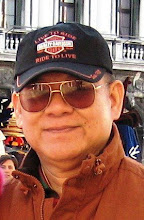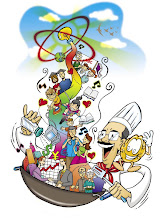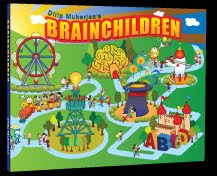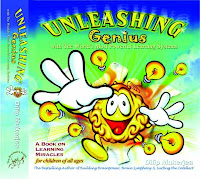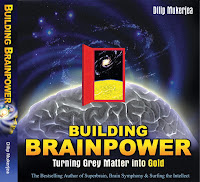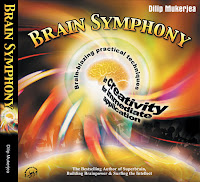It depends very much on two things, as the late creativity maestro Dr Edward de Bono put it:
Thursday, February 2, 2023
1) What do you choose to see?
2) Where do you direct your attention?
"The reasons that many opportunities pass us by is a perceptual one - we do not recognise an opportunity for what it is. An opportunity exists only when we see it." ...
"Everyone is surrounded by opportunities. But they only exist once they have been seen. And they will only be seen if they are looked for."
Godspeed!
I particularly like what I am reading:
"In a fast-moving, competitive world, being able to learn new skills is one of the keys to success. It's not enough to be smart — you need to always be getting smarter," says Heidi Grant Halvorson, author of HBR's 'Single Nine Things Successful People Do Differently'.
Sunday, January 29, 2023
LEAVING FOOTPRINTS WHEN READING:
Whenever I read a book, I love to interact with the author by writing notes in the margins, in addition to highlighting key phrases in selected passages.
Marginal notations, or annotations, as reading experts love to call them, allow me to probe the text in order to fish out essential information. They also help me to remember important information better.
Over the years, I have synthesised and/or developed a lot of graphic symbols or notation marks to help in my marginalia routines.
To facilitate my reading exploration, I often use a colour marker pen (my favourite colour is orange) designed with two capped end tips, one with a 'fat tip' and the other with a 'fine tip'.
Here are some easy-to-use examples of mine:
DefN: to denote a "new term or terminology";
V with a circle around it: to denote a "new word or phrase";
R: with a circle around it: to "remind me to go back and review an important point" at a later time;
RR with a circle around it: to "remind me to double check or verify" a point or passage with other authoritative sources;
?: to denote a "confusing passage";
XR with a circle around it: to denote a "cross reference to", with a crisp description;
Q with a circle around it: to denote a "memorable or wise quotation";
QT with a circle around it: to denote a practical "questionnaire", suitable for reproduction:
CL with a circle around it: to denote a useful "checklist", suitable for reproduction;
Ex. with a circle around it: to denote a good "example";
ST with a circle around it: to denote a good "story" I would use in my consulting or training;
vs. with a circle around it: to denote a "contrasting point", with a crisp description;
two vertical lines, in parallel: to denote an "important passage";
[...]: to denote (open & close) a "vital statement" or "a principal premise of the author"; (sometimes, I may use an "underline");
a huge circle (enclosing a passage): to denote a really "exciting passage";
smiley: to denote an "interesting or amusing anecdote";
oo, with a circle around it: to "investigate" or "probe further" (in contrast with RR, I will use this one when I know the task ahead is seemingly more burdensome and/or complex);
-->: to denote "a lead to" e.g. another passage, follow by page number, if it is on another page or a crisp description; it can also be "a lead to" a another book or source;
<-->: to denote an "intertwined relationship" between two points;
A2T: to denote "a single action (task) to take" e.g. check the Internet for further info, follow by a crisp description;
T2D: to denote "a series of consecutive and/or concurrent actions (tasks) to take", with crisp & enumberated description;
P2P or Q2P: to denote "point to ponder" or "question to ponder";
N2R: to denote "note to remember", usually for a specific purpose e.g. preparing for exam;
SI with a circle around it: to denote a "strategic insight from the experts";
# with circle around it: to denote "enumerated points" in a passage;
= with a circle around it: to denote "a point which resonates with another author's point", with name, etc.;
Usually at the end pages of the book, e.g. bibliography or appendix, I will use these symbols or notations:
tick: to denote the books I already owned;
asterisk (*): to denote books I intend to check out and/or acquire for my personal library;
These are my regular footprints in the books I have read.
Occasionally, I may use small and colourful Post-It Notes to tag important sections of the book for quick reference, especially when I am preparing for a business presentation or doing a research project.
Thursday, January 26, 2023
WHY PEOPLE FAIL
In writing this post, I have been inspired by Gary Ryan Blair, better known as 'The GoalsGuy' on the net.
According to him, here are the ten primary reasons while people fail in life, with my humble comments:
1) ACTION WITHOUT VISION:
- Joel Arthur Barker, the Paradigm guy, calls this 'random activity';
- the vision of where one wants to go & what one wants to achieve as a result must be very clear at the onset;
- it is the clarity of vision that brings purpose & priority to what one does;
2) VISION WITHOUT ACTION:
- Joel Arthur Barker calls it 'daydreaming';
- without a game plan & without putting it to work, nothing moves (as Albert Einstein is believed to have said, "Nothing changes until something moves!";
- please read my earlier post on developing a game plan with 'SMART';
3) UNREALISTIC TIME FRAMES & EXPECTATIONS:
- from my personal experience, the typical human thirst for 'instant gratification' has partly to be blamed;
- the best way to overcome this problem to start with baby steps; e.g. next 7 days; next 30 days; next 60 days; next 90 days or so;
- having a proper time planning system also helps;
4) 'WHY' NOT CLEAR:
- in reality, there isn't enough clarity in the thought processing, particularly during the process of defining personal goals;
- put it in another way, the purpose of wanting the goals in the first place is not yet appropriately defined;
- some questions worth pondering:
1) Do I really want it? Why?; 2) Do I really need it? Why?; 3) Is it worthwhile to have it? Why?; 4) Am I prepared to do whatever it takes to get it?
5) DENIAL OF REALITY:
- for most people, it is always difficult to understand & accept that perception is reality at work;
6) CONFLICTING VALUES:
- value clarification is never an easy task;
- from my personal as well as professional experience, one often needs a coach or mentor to guide & facilitate the process;
- when I first embarked on a disciplined goal setting process with 'Dynamics of Personal Motivation' (Success Motivation Institute) during the seventies, it took me quite a long while to sort out my value system;
7) DIFFUSION OF ENERGY:
- this is trying to do too many tasks at one go, generally arising from trying to have too many goals in pursuit;
- application of Pareto's Law is essential to sorting out one's goals as well as tasks;
- it's also important to identify high-payout activities in the first place;
- the balanced 'Wheel of Life' is worth exploring;
- also, it is important to reduce personal stress levels as it depletes one's energy very quickly; hence, practising some relaxation routines is a good antidote;
- learning the best practices for email, voicemail, interruptions & procrastination will be most helpful;
8) LACK OF FOCUS:
- I reckon this has more to do with the fact that the goals & values which one wants are not properly defined in the first place;
- I believe not realising the difference between urgency & importance, particulary relating to task management, also contributes to the problem;
- also the fear of making mistakes often aggravates the thinking, resulting in poor focus;
- for those readers who have undergone outdoor adventure training, the 'swinging log' provides the most enriching 'real-world' experience of the 'lack of focus';
- be very clear about what one wants in life;
9) TRYING TO DO IT ALL ALONE:
- the saying 'No Man is an island' is very true;
- networking or the buddy system often expedites the goal achieving process;
10) FEAR OF FAILURE:
- To me, I think the 'wanting to look good among the peers' is a greater problem that the 'fear of failure';
- the best way to overcome this is to take baby steps mentioned earlier & tie in a reward system for successive completion of each step;
- another way to deal with this problem is ask yourself: what is the worst case scenario if things go wrong? for me; if it is not life & death, then it is not a major issue to be concerned with, as long the contingent plans are in place to deal with it;
- also, learn how to relax, because worrying is another important issue that often arises from this problem;
[Gary Ryan Blair is President of The GoalsGuy. He helps business owners, corporate executives & sales professionals manage their time, set their priorities, & stay focused so they can achieve their goals, grow their business, & be more successful.]
Monday, January 16, 2023
Benjamin Franklin had been absolutely right!
When you have the right tool and technique, completing the task is effortless.
When defining strategy, it's critical to choose the right tools for the job.
From another perspective, having the right tools won't necessarily make you a good mechanic. Nor will having the right strategy analysis tools make you a good strategist.
Subscribe to:
Posts (Atom)















